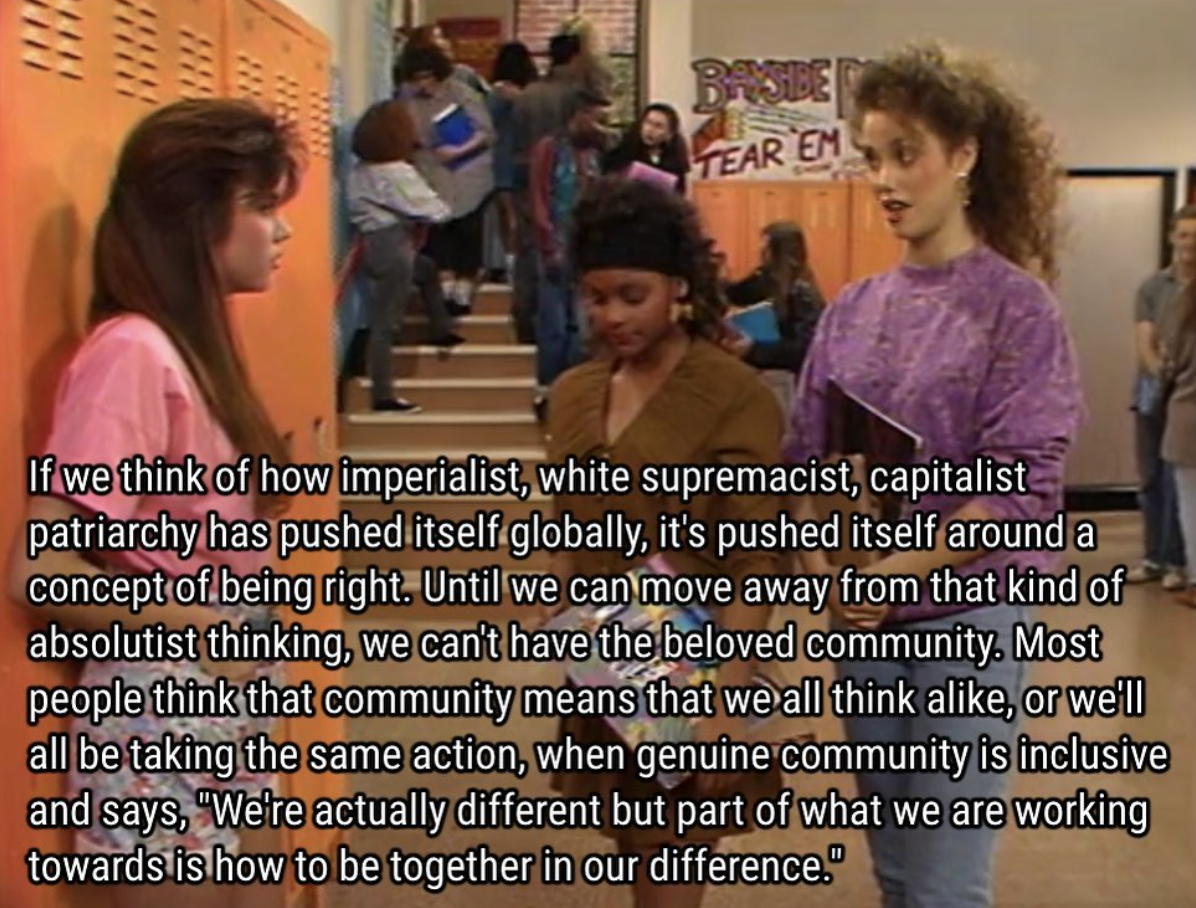Making Room for the Unserious: Saved by the Bell, Feminism, and the Commodification of Childhood
When I was a kid, I had such a crush on Zack Morris. The trickster, Ferris Bueller type in light wash jeans, a baggy t-shirt tucked in with a belt. 90s chef kiss. Strutting down the halls of Bayside High with unserious confidence. Wanting to be a good guy but also just a total dick. 90s eye roll. Watching Saved by the Bell as an adult for the first time, I was struck by how lazy the show was, and I don’t mean that as an insult. It was unserious in a way that feels impossible today. Episodes were out of order, plots contradicted themselves, and Zack could be dating Kelly one episode while hitting on the new girl the next, without the weight of continuity or curated brand consistency we now demand from our media. It wasn’t deep, but it was, in a way, free. The show, and the era it came from, allowed for unseriousness, contradiction, and messiness. I am realizing now that I miss that.
As I watched Jessie Spano yell about feminism, caffeine pills, and fairness while the laugh track rolled, I remembered how these glimpses of seriousness slipped into unserious media. She was often the butt of the joke, her feminist rants undercut by the next scene where Zack would charm his way out of accountability, but the seed was planted. I saw a girl standing up for herself, even if the world around her wasn’t ready to take her seriously. There was power in the contradictions: a show that was silly, lazy, and inconsistent, yet capable of introducing a generation of kids to ideas of gender equality, consent, and speaking up. It wasn’t perfect, but it was something, and it arrived in a package that didn’t demand we curate our identities around it. It allowed us to be kids, watching imperfect adults navigate imperfect problems, without algorithms calculating what we would buy next based on what we felt while we watched.
Then there was the “Say Nope to Dope” episode, complete with heavy-handed warnings about peer pressure and the dangers of drugs, all while the show’s bright colors and laugh track made it feel like just another goofy day at Bayside. Looking back, it’s almost funny how much adults thought drugs were the biggest threat to kids, while the real drug was quietly creeping in: commodification. Our attention, our desires, our dreams were being shaped by commercials squeezed between the episodes, by the toys, cereals, and clothes tied to our favorite characters, and eventually by the networks themselves. The problem wasn’t the weed someone’s older brother might offer us at a party; the problem was how entertainment was being packaged to sell us back to ourselves, turning our childhood into a profitable pipeline long before we even knew what that meant.
What we lost in that shift was the freedom to be messy, unserious, and inconsistent. Entertainment moved from being a backdrop to our lives to becoming a shaping force, demanding that we align ourselves with curated identities, fandoms, and algorithms that track every preference and click. We lost the ability to just watch something without it turning into a reflection of who we are supposed to be or what we are supposed to buy. The exhaustion of constant branding, of being told to optimize ourselves, left little room for the lazy, out-of-order, imperfect storytelling of a show like Saved by the Bell. We traded unseriousness for constant vigilance, play for productivity, and in that trade, something soft and essential slipped away.
Now, I am making room for the unserious. Watching Saved by the Bell again reminded me that I am allowed to live without perfect curation or constant self-optimization. I am allowed to be messy, to contradict myself, to enjoy something simply because it makes me smile. I am making room first for myself, clearing my physical and mental space to hold the softness that unseriousness requires. From there, I can create space for others, for connection that isn’t transactional, for work that feels aligned, for conversations that don’t need to prove anything. I am remembering that the best parts of childhood weren’t the lessons packaged as PSAs, but the freedom to live without every moment needing to be a statement. I am making room to live that way again, with reverence, with softness, with the quiet knowledge that it is enough.
@savedbythebellhooks
